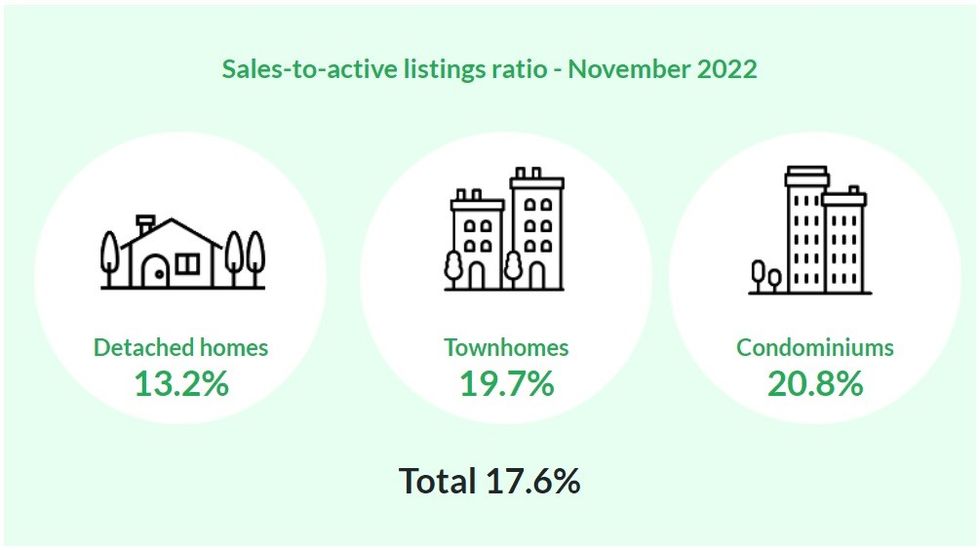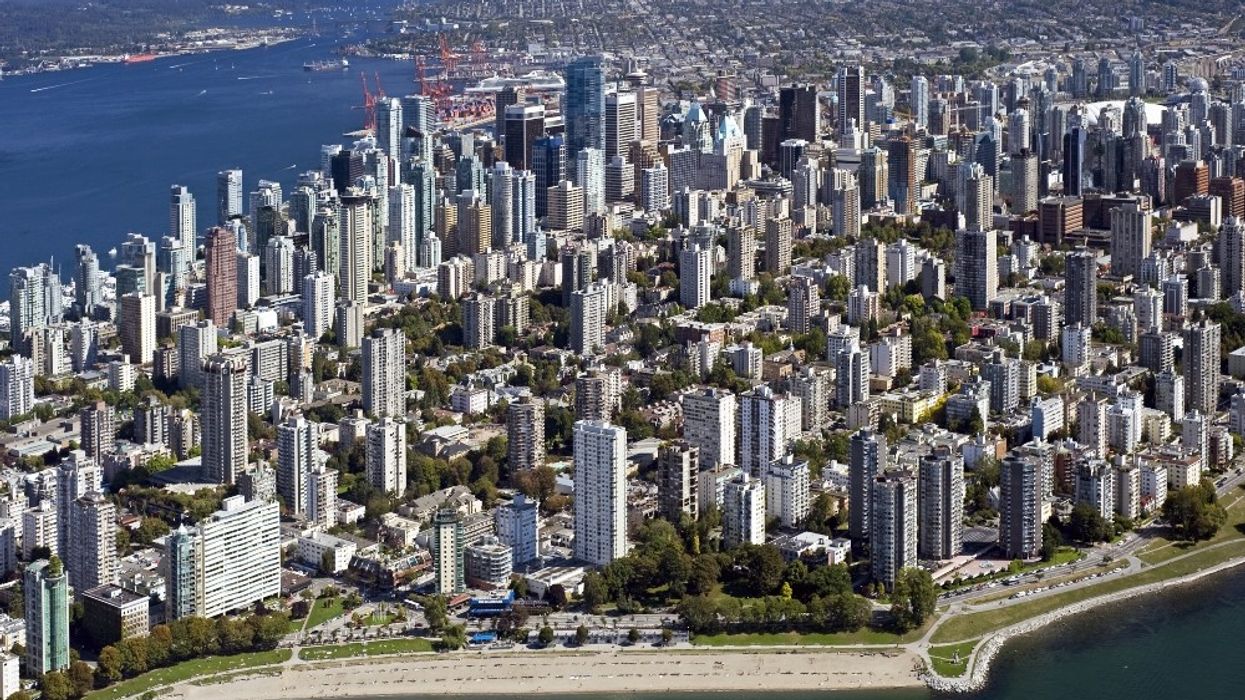Residential sales are typically fairly quiet in November, but the latest statistics published by the Real Estate Board of Greater Vancouver (REBGV) indicate that even by that lower standard, Metro Vancouver has seen quite a drop-off in activity over the past year.
Last month, the Board recorded 1,614 residential sales, which was a 15.2% decrease compared to the 1,903 sales in October 2022, but a staggering 52.9% decrease compared to November 2021. Compared to the 10-year November average, last month's sales came in 36.9% below.
In terms of the amount of listings, Metro Vancouver also saw a sizeable decrease. In November, the Board registered 3,055 new listings, a 24.2% decrease compared to 4,033 in October, and a 22.9% decrease compared to 3,964 in November 2021.
Accordingly, the total amount of active listings has also decreased, now at 9,179, which is a 6.8% decrease compared to 9,852 in October, but a 28.5% increase compared to 7,144 this time last year.
“From a long-term structural standpoint, the current pace of listings and available inventory remain relatively tight when considered against a backdrop of continued in-migration to the province," said Andrew Lis, REBGV’s Director of Economics and Data Analytics. With the recently announced increase in federal immigration targets, the state of available supply in our market remains one demand surge away from renewed price escalation, despite the inflationary environment and elevated mortgage rates."
READ: Canada’s Latest Immigration Plan is the Most Ambitious Yet. Can Housing Targets Keep Up?
The Market Lean
What does this mean for consumers who are thinking about buying or selling?
The above statistics allow us to identify the sales-to-active-listings ratio and the sales-to-new-listings ratio, two numbers that provide a quantitative indicator of whether the market is leaning towards buyers or sellers.
For the sales-to-active-listings ratio, the REBGV defines a ratio over 20% as a sellers’ market and a ratio under 12% as a buyers’ market, with anything between an indication of a balanced market. For November, the ratio was 17.6%, after being at 19.3% last month, perhaps an indication of increasing balance.

For the sales-to-new-listings ratio, the Canada Mortgage and Housing Corporation (CMHC) sets those thresholds at 55% or higher for a sellers’ market and 40% or lower for a buyers’ market. In November, the ratio was 52.8%, after being at 47.1% in October, again indicating balance.
READ: How to Sell Wisely in Vancouver’s Current Real Estate Market
Prices and Inflation
In terms of prices, the benchmark price for all residential properties in Metro Vancouver is now at about $1,131,600, a 1.5% decrease compared to October, a 10.2% decrease over the last six months, and a 0.6% decrease compared to November 2021.
The benchmark price specifically for single-detached homes is now $1,856,800, a 1.9% decrease from last month and a 1.7% decrease from this time last year.
For townhouses, the benchmark price is now $1,027,900, a 1.5% decrease compared to October and a 2.7% increase compared to November 2021.
For apartments, the benchmark price is now $720,500, a 0.9% decrease from October, but also an increase compared to last year, of 3.5%.
Regionally, benchmark prices for residential properties saw a minor decrease in every single submarket of Greater Vancouver in the last month, except in Vancouver East, which saw a 0.4% increase.
Compared to this time last year, however, benchmark prices in most of the bigger submarkets -- such as Burnaby, New Westminster, and Richmond -- are still up, with the notable exception of Vancouver, where prices are now lower. Meanwhile, the more suburban submarkets -- such as Maple Ridge, Squamish, and Bowen Island -- have generally seen their benchmark price trend downwards.
This has been a year where the real estate market has been largely defined by inflation and interest rates -- with another interest rate increase expected next week -- and it's telling that through it all, prices are still at or above those of last year.
"With the most recent core inflation metrics showing a stubborn reluctance to respond significantly to the furious pace of rate increases, the Bank of Canada may choose to act more forcefully to bring inflation back toward target levels," said Lis. "While it’s always difficult to predict what the bank will do with certainty, this persistent inflationary backdrop sets up the December [7] rate announcement to be yet another increase, making holiday-season home purchases something many people may end up foregoing this year."





















